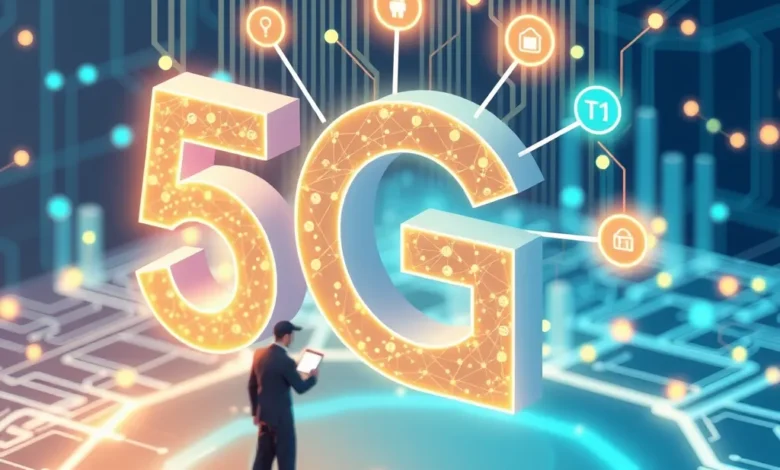5G Vastly Improves Data Collection and AI in Business Operations

The rollout of 5G technology is revolutionizing business operations by dramatically improving data collection and artificial intelligence (AI) capabilities. With speeds up to 100 times faster than 4G and ultra-low latency, 5G is enabling real-time data processing, smarter automation, and new business models across industries. Companies that embrace this connectivity leap are discovering new ways to innovate, make decisions faster, and deliver superior customer experiences.
Real-Time Data Collection at Scale
One of the most significant advantages of 5G is its ability to facilitate real-time data collection and processing. The ultra-low latency of 5G—sometimes less than a millisecond—means data can be transmitted and analyzed instantly. This is a game-changer for industries where timing and accuracy are critical. For example, in manufacturing, sensors on equipment can relay performance data in real time, allowing for predictive maintenance and minimizing costly downtime. In healthcare, wearable devices and medical sensors can transmit patient data continuously, supporting immediate clinical decisions and proactive care.
Retailers are also leveraging 5G to analyze customer behavior in stores, tracking movement and interactions with products to deliver personalized marketing and optimize sales strategies. The financial sector benefits from real-time market data analysis, enabling quicker, better-informed investment decisions. Across all these sectors, 5G’s capacity for rapid, large-scale data collection is laying the foundation for more agile, data-driven organizations.
AI and 5G: A Powerful Combination
The true power of 5G emerges when it is combined with AI. 5G’s high bandwidth and fast connectivity allow AI and machine learning models to access and process massive datasets without delay. This means businesses can automate complex processes, gain faster insights, and make smarter decisions. For instance, manufacturers can use AI-powered predictive maintenance to anticipate equipment failures, while retailers can deploy AI to manage inventory and forecast demand with greater accuracy.
In the workplace, 5G and AI are transforming collaboration and productivity. AI-driven applications can analyze data from multiple sources, automate repetitive tasks, and even generate reports or recommendations in real time. The integration of augmented reality (AR) and AI, powered by 5G, is also enabling immersive training, remote support, and interactive customer experiences that were previously impossible due to network limitations.
Edge Computing and Enhanced Security
5G is also accelerating the adoption of edge computing, where data processing happens closer to the source rather than in distant cloud servers. This reduces latency, enhances security, and ensures that sensitive information—such as financial transactions or patient health data—can be processed quickly and safely. In smart factories, edge computing allows for instant oversight of production lines, leading to higher quality standards and faster problem resolution.
For businesses with global operations or remote teams, 5G-powered cloud collaboration tools offer seamless performance, enabling employees to work together efficiently from anywhere in the world. This flexibility is crucial for maintaining productivity in today’s hybrid and remote work environments.
Transforming IoT and Automation
The Internet of Things (IoT) is another area where 5G is making a profound impact. With its ability to connect a massive number of devices simultaneously, 5G supports the deployment of smart sensors, robots, drones, and autonomous vehicles at scale. These devices generate enormous amounts of data, which can now be collected, analyzed, and acted upon in real time.
In transportation, for example, 5G-enabled sensors on vehicles and infrastructure provide up-to-the-minute information on traffic patterns and road conditions, optimizing routes and improving safety. In agriculture, smart sensors monitor soil health and crop conditions, enabling precision farming and higher yields. The result is a new era of automation and operational excellence, driven by the seamless integration of 5G and AI.
Business Growth, Agility, and Innovation
The impact of 5G on business growth and innovation cannot be overstated. With faster data transfer and analysis, companies can make quicker, better-informed decisions, respond rapidly to market changes, and bring new products to market faster. Teams can collaborate more efficiently, share large files instantly, and leverage powerful cloud-based tools for innovation.
5G’s reliability and speed also support advanced analytics, allowing businesses to move from descriptive to predictive and prescriptive analytics. This evolution empowers leaders to anticipate customer needs, identify new opportunities, and proactively address challenges.
Preparing for the Future
As 5G networks continue to expand, businesses must prepare to capitalize on this technology. This means investing in compatible devices and infrastructure, training employees to leverage new tools, and rethinking processes to maximize the benefits of real-time data and AI. Security and data governance will also be critical, as the volume and sensitivity of data increase.
The convergence of 5G, AI, and advanced analytics is ushering in a new era of business transformation. Companies that embrace these technologies will unlock unprecedented levels of efficiency, agility, and innovation—positioning themselves at the forefront of their industries for years to come.




